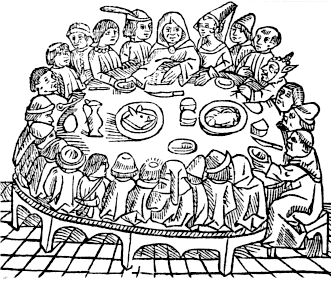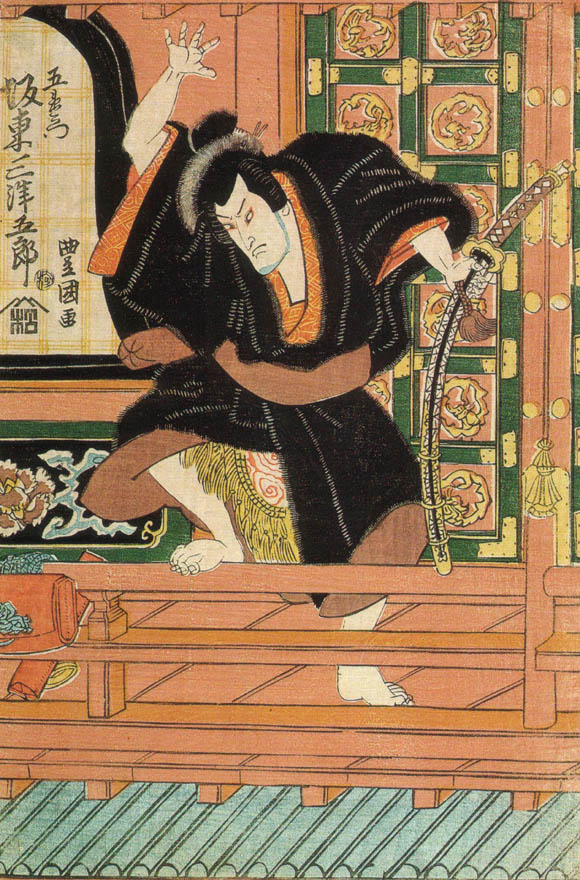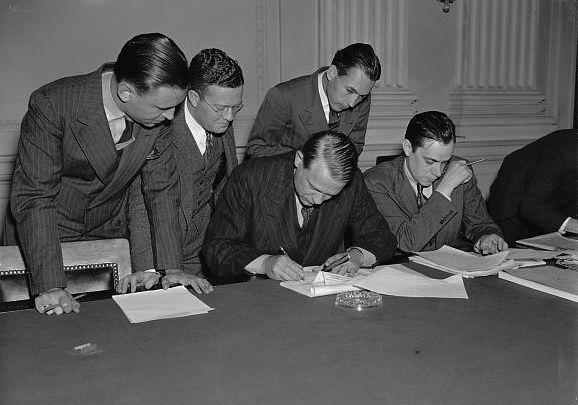|
Noble Outlaw
The noble outlaw is a literary archetype found in cultures around the world. Other phrases denoting the same or a similar concept include "knight-errant", particular to European medieval chivalric romance literature, and Byronic hero, especially in European Romanticism. Definition Hubert Babinski, in a review of a study of the 18th-century Italian bandit-outlaw Angelo Duca defines it as follows: the noble outlaw is "a basically good person who had been wronged early in his life by some superior in the social hierarchy. On the basis of that experience the young man decides that such a wrong can only be redressed if the society changes, but such changes can not come from within the social system, only in defiance of it." Peter L. Thorslev, Jr., in his book on ''The Byronic Hero'' in the 1960s, described the noble outlaw as a development of a prior archetype, the gothic villain, that in its turn lead to the Byronic hero. Both noble outlaw and gothic villain are rebels, against socie ... [...More Info...] [...Related Items...] OR: [Wikipedia] [Google] [Baidu] |
Literary Archetype
Archetypal literary criticism is a type of analytical theory that interprets a text by focusing on recurring myths and archetypes (from the Greek ''archē'', "beginning", and ''typos'', "imprint") in the narrative, symbols, images, and character types in literary works. As an acknowledged form of literary criticism, it dates back to 1934 when Classical scholar Maud Bodkin published '' Archetypal Patterns in Poetry''. Archetypal literary criticism's origins are rooted in two other academic disciplines, social anthropology and psychoanalysis; each contributed to literary criticism in separate ways. Archetypal criticism peaked in popularity in the 1940s and 1950s, largely due to the work of Canadian literary critic Northrop Frye (1912-1991). In the twenty-first century, archetypal literary criticism is no longer widely practiced; there have not been any major recent developments in the field (with the possible exception of biblical literary criticism), but it still has a place in t ... [...More Info...] [...Related Items...] OR: [Wikipedia] [Google] [Baidu] |
The Robbers
''The Robbers'' (', ) is the first dramatic play by German playwright Friedrich Schiller. The play was published in 1781 and premiered on 13 January 1782 in Mannheim and was inspired by Leisewitz's earlier play '' Julius of Taranto''. It was written towards the end of the German ''Sturm und Drang'' ("Storm and Stress") movement, and many critics, such as Peter Brooks, consider it very influential in the development of European melodrama. The play astounded its Mannheim audience and made Schiller an overnight sensation. It later became the basis for Verdi's opera of the same name, '' I masnadieri''. Plot and description The plot revolves around the conflict between two aristocratic brothers, Karl and Franz Moor. The charismatic but rebellious student Karl is deeply loved by his father. The younger brother, Franz, who appears as a cold, calculating villain, plots to wrest away Karl's inheritance. As the play unfolds, both Franz's motives and Karl's innocence and heroism are rev ... [...More Info...] [...Related Items...] OR: [Wikipedia] [Google] [Baidu] |
Outlaws
An outlaw is a person living outside the law. Outlaws or The Outlaws may also refer to: Film and television Film * ''The Outlaws'' (1950 film), an Italian crime film * ''Outlaws'' (1985 film), a French film * ''The Outlaws'' (2017 film), a South Korean film * ''Outlaws'' (2017 film), or ''1%'', an Australian film * ''Outlaws'' (2021 film), a Spanish film * ''The Out-Laws'' (film), a 2023 American film Television * ''Outlaws'' (1960 TV series), an American Western television series * ''Outlaws'' (1986 TV series), an American action-adventure series * ''Outlaws'' (2004 TV series), a British drama * ''The Out-Laws'' (2012 TV series), the British title of the Flemish series ''Clan'' * ''The Outlaws'' (2021 TV series), a British comedy crime series * "Outlaws" (''Lost''), a 2005 episode Literature * The Outlaws, characters in the ''Just William'' series of children's books by Richmal Crompton * ''The Outlaws'', a novel in '' The Bikers'' series by Richard Gordon * ''The Ou ... [...More Info...] [...Related Items...] OR: [Wikipedia] [Google] [Baidu] |
Outlaw
An outlaw, in its original and legal meaning, is a person declared as outside the protection of the law. In pre-modern societies, all legal protection was withdrawn from the criminal, so anyone was legally empowered to persecute or kill them. Outlawry was thus one of the harshest penalties in the legal system. In Germanic law, early Germanic law, the death penalty is conspicuously absent, and outlawing is the most extreme punishment, presumably amounting to a death sentence in practice. The concept is known from Roman law, as the status of ''homo sacer'', and persisted throughout the Middle Ages. A secondary meaning of outlaw is a person systematically avoiding capture by evasion and violence. These meanings are related and overlapping but not necessarily identical. A fugitive who is declared outside protection of law in one jurisdiction but who receives asylum and lives openly and obedient to local laws in another jurisdiction is an outlaw in the first meaning but not the seco ... [...More Info...] [...Related Items...] OR: [Wikipedia] [Google] [Baidu] |
Folk Hero
A folk hero or national hero is a type of hero – real, fictional or mythology, mythological – with their name, personality and deeds embedded in the popular consciousness of a people, mentioned frequently in Folk music, folk songs, folk tales and other folklore; and with modern trope (literature), trope status in literature, art and films. Overview Although some folk heroes are historical public figures, many are not. The lives of folk heroes are generally fictional, their characteristics and deeds often exaggerated to mythic proportions. The folk hero often begins life as a normal person, but is transformed into someone extraordinary by significant life events, often in response to social injustice, and sometimes in response to natural disasters. One major category of folk hero is the defender of the common people against the oppression or corruption of the established power structure. Members of this category of folk hero often, but not necessarily, live outlaw, outside ... [...More Info...] [...Related Items...] OR: [Wikipedia] [Google] [Baidu] |
William Of Cloudslee
William is a masculine given name of Germanic origin. It became popular in England after the Norman conquest in 1066,All Things William"Meaning & Origin of the Name"/ref> and remained so throughout the Middle Ages and into the modern era. It is sometimes abbreviated "Wm." Shortened familiar versions in English include Will or Wil, Wills, Willy, Willie, Bill, Billie, and Billy. A common Irish form is Liam. Scottish diminutives include Wull, Willie or Wullie (as in Oor Wullie). Female forms include Willa, Willemina, Wilma and Wilhelmina. Etymology William is related to the German given name ''Wilhelm''. Both ultimately descend from Proto-Germanic ''*Wiljahelmaz'', with a direct cognate also in the Old Norse name ''Vilhjalmr'' and a West Germanic borrowing into Medieval Latin ''Willelmus''. The Proto-Germanic name is a compound of *''wiljô'' "will, wish, desire" and *''helmaz'' "helm, helmet".Hanks, Hardcastle and Hodges, ''Oxford Dictionary of First Names'', Oxford Univer ... [...More Info...] [...Related Items...] OR: [Wikipedia] [Google] [Baidu] |
The Tale Of Gamelyn
''The Tale of Gamelyn'' is a romance written in c. 1350 in a dialect of Middle English, considered part of the Matter of England.Cartlidge, Neil and DS Brewer. ''Boundaries in medieval romance'', 2008, , 9781843841555. pp. 29–42. It is presented in a style of rhymed couplets and described by Skeat as "the older and longer kind of ballad" and by Ramsey as a "rough and ready romance."Knight, Stephen, and Thomas H. Ohlgren. “The Tale of Gamelyn: Introduction.” ''Robin Hood and Other Outlaw Tales'' (1997). Print. This 900-line romance is set during the reign of King Edward I and tells the story of Gamelyn, and the various obstacles he must overcome in order to retrieve his rightful inheritance from his older brother. The tale confronts the corruption of the law, illuminating a lack of moral and political consistency. There is no indication as to where exactly this story takes place, given that the text itself has no place names, and Gamelyn's family name of Boundys most likely ... [...More Info...] [...Related Items...] OR: [Wikipedia] [Google] [Baidu] |
Ishikawa Goemon
was the leader of a group of bandits during the Azuchi-Momoyama period in Japan. Over time, and especially during the Edo period (1603-1867), his life and deeds became a center of attention, and he became known as a legendary Japanese outlaw hero who stole gold and other valuables to give to the poor. He and his son were boiled alive in public after their failed assassination attempt on the Sengoku period warlord Toyotomi Hideyoshi. His legend lives on in contemporary Japanese popular culture, often giving him greatly exaggerated ninja skills. Biography There is little historical information on Goemon's life, and as he has become a folk hero, his background and origins have been widely speculated upon. In his first appearance in the historical annals, in the 1642 biography of Hideyoshi, Goemon was referred to simply as a thief. As his legend became popular, various anti-authoritarian exploits were attributed to him, including a supposed assassination attempt against the O ... [...More Info...] [...Related Items...] OR: [Wikipedia] [Google] [Baidu] |
Wuxia
( , literally "martial arts and chivalry") is a genre of Chinese literature, Chinese fiction concerning the adventures of martial artists in ancient China. Although is traditionally a form of historical fantasy literature, its popularity has caused it to be adapted for such diverse art forms as Chinese opera, manhua, television dramas, films, and video games. It forms part of popular culture in many Chinese-speaking communities around the world. According to Hong Kong film director, producer, and movie writer Ronny Yu, wuxia movies are not to be confused with Martial arts film, martial arts movies. The word "" is a compound composed of the elements (, literally "martial", "military", or "armed") and (, literally "chivalrous", "vigilante" or "hero"). A martial artist who follows the code of is often referred to as a (, literally "follower of ") or (, literally "wandering "). In some translations, the martial artist is referred to as a () or (), either of which can be i ... [...More Info...] [...Related Items...] OR: [Wikipedia] [Google] [Baidu] |
Southern United States
The Southern United States (sometimes Dixie, also referred to as the Southern States, the American South, the Southland, Dixieland, or simply the South) is List of regions of the United States, census regions defined by the United States Census Bureau. It is between the Atlantic Ocean and the Western United States, with the Midwestern United States, Midwestern and Northeastern United States to its north and the Gulf of Mexico and Mexico to its south. Historically, the South was defined as all states south of the 18th-century Mason–Dixon line, the Ohio River, and the Parallel 36°30′ north, 36°30′ parallel.The South . ''Britannica''. Retrieved June 5, 2021. Within the South are different subregions such as the Southeastern United States, Southeast, South Central United States, South Central, Upland South, Upper South, and ... [...More Info...] [...Related Items...] OR: [Wikipedia] [Google] [Baidu] |
The Crucible
''The Crucible'' is a 1953 play by the American playwright Arthur Miller. It is a dramatized and partially fictionalized story of the Salem witch trials that took place in the Province of Massachusetts Bay from 1692 to 1693. Miller wrote the play as an allegory for McCarthyism, when the United States government persecuted people accused of being communists. Miller was later questioned by the House of Representatives' Committee on Un-American Activities in 1956 and convicted of contempt of Congress for refusing to identify others present at meetings he had attended. The play was first performed at the Martin Beck Theatre on Broadway on January 22, 1953, starring E. G. Marshall, Beatrice Straight and Madeleine Sherwood. Miller felt that this production was too stylized and cold, and the reviews for it were largely hostile (although ''The New York Times'' noted "a powerful play n adriving performance"). The production won the 1953 Tony Award for Best Play. A year lat ... [...More Info...] [...Related Items...] OR: [Wikipedia] [Google] [Baidu] |
Arthur Miller
Arthur Asher Miller (October 17, 1915 – February 10, 2005) was an American playwright, essayist and screenwriter in the 20th-century American theater. Among his most popular plays are '' All My Sons'' (1947), '' Death of a Salesman'' (1949), ''The Crucible'' (1953), and '' A View from the Bridge'' (1955). He wrote several screenplays, including '' The Misfits'' (1961). The drama ''Death of a Salesman'' is considered one of the best American plays of the 20th century. Miller was often in the public eye, particularly during the late 1940s, 1950s and early 1960s. During this time, he received a Pulitzer Prize for Drama, testified before the House Un-American Activities Committee, and married Marilyn Monroe. In 1980, he received the St. Louis Literary Award from the Saint Louis University Library Associates. He received the Praemium Imperiale prize in 2001, the Prince of Asturias Award in 2002, and the Jerusalem Prize in 2003, and the Dorothy and Lillian Gish Prize in ... [...More Info...] [...Related Items...] OR: [Wikipedia] [Google] [Baidu] |




